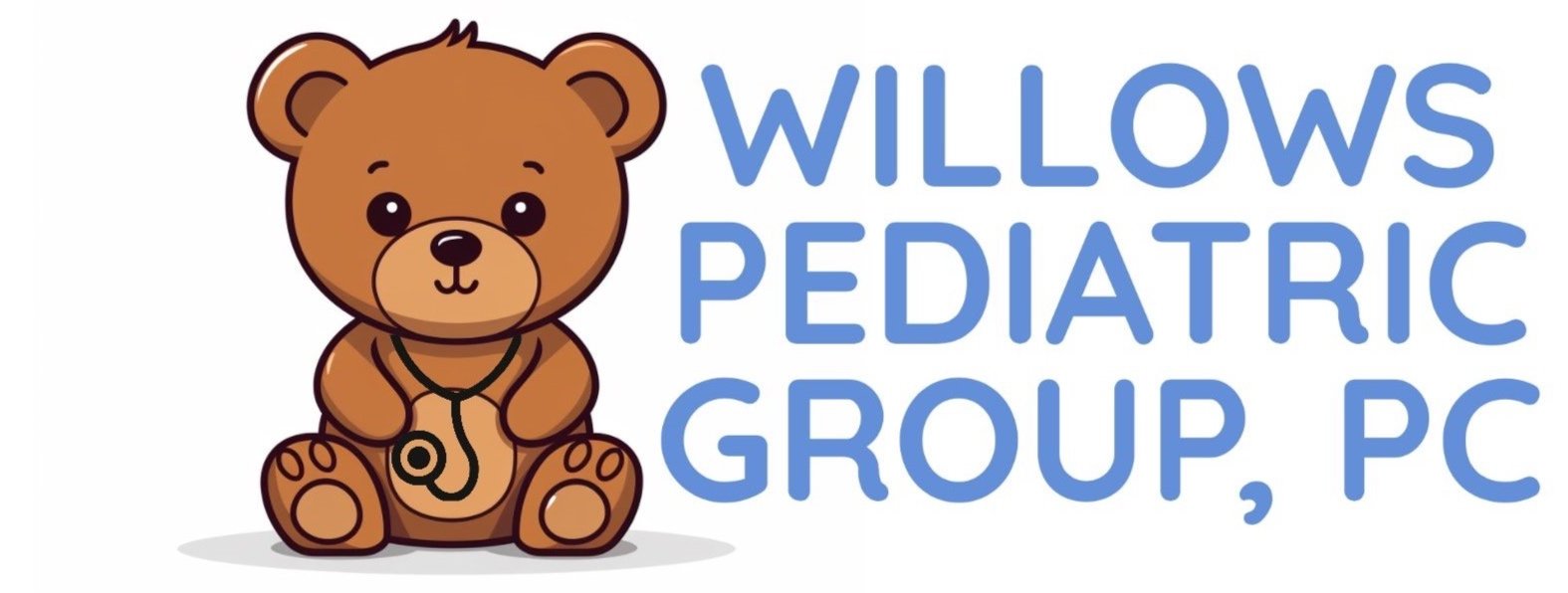Vaccines
We are a vaccinating practice.
The physicians and providers of Willows Pediatrics strongly believe children should receive vaccines according to the schedule recommended by the American Academy of Pediatrics. Scientific evidence has established that childhood vaccines are safe and protect children from serious illness. Children who do not receive immunizations are susceptible to potentially life-threatening illnesses and present a risk to any other children they come into contact with and the community at large. The potential consequences of vaccine preventable diseases include hospitalization, mechanical ventilation, seizures, brain damage, and even death.
Sorting through the benefits and misinformation
As pediatricians, we have seen the tremendous benefits of childhood vaccinations. At the same time, we have seen how misinformation about vaccines has led some parents to delay or withhold vaccines, putting children at risk for illness. We understand the difficulty parents may have in sorting through the vast quantities of data on vaccine safety, and we are here to help guide you and answer all your vaccine-related questions.
If you are looking for credible, reliable information about vaccines, we suggest the Vaccine Education Center from the Children’s Hospital of Philadelphia.
At each visit we will review your child’s health record and discuss with you any vaccines that are recommended. Your child’s vaccine record is kept in your child’s chart and can be printed for you at each visit. Below is our recommended vaccination schedule.
All vaccines are inactivated in the pediatric schedule with the exception of the following live vaccines: MMR, Varicella, Rotateq. These live vaccines should not be given to immunocompromised children or children living with immunocompromised family members. Please speak to your provider if this applies to your family.
All vaccines are thimerosal free.
| Age | Vaccinations (Also, Infuenza* if seasonally appropriate) | |
|---|---|---|
| 2 Weeks | Hep B #1 if not given at birth | |
| 2 Months | DTaP #1, IPV #1, Prevnar #1, HIB #1, Rotateq #1, Hep B #2 | |
| 4 Months | DTap #2, IPV #2, Prevnar #2, HIB #2, Rotateq #2 | |
| 6 Months | DTaP #3, IPV #3, Prevnar #3, HIB #3, Rotateq #3 | |
| 9 Months | Hep B #3 | |
| 12 Months | MMR #1, Varivax #1, Hep A | |
| 15 Months | Prevnar #4, HIB #4 | |
| 18-20 Months | DTaP #4, Hep A #2 | |
| 2 Years | None | |
| 2.5 Years | None | |
| 3 Years | None | |
| 4 Years | DTaP #5, IPV #4 | |
| 5 Years | MMR #2, Varivax #2 | |
| 6-10 Years | None | |
| 11 Years | Menquadfi #1, Tdap, HPV #1 | |
| 12 Years | HPV #2 | |
| 13-15 Years | None | |
| 16 Years | Menquadfi #2 | |
| 17-18 Years | Men B #1 and #2 before college | |
| 19+ Years | Tdap boosters as indicated |
| CODE | VACCINE NAME |
|---|---|
| DTaP | Diphtheria, Tetanus and Acellular Pertussis vaccine for children less than 7 years of age |
| Hep A | Hepatitis A vaccine |
| Hep B | Hepatitis B vaccine |
| HIB | Haemophilus Influenza Type B vaccine |
| HPV | Human Papilloma Virus vaccine (Gardasil 9) Note: If first dose of HPV is given before age 15 years, 2 doses are needed. If first dose is given on or after age 15 years, 3 doses are needed. |
| IPV | Inactivated Polio vaccine |
| Menquadfi | Meningococcal Group A,C,W,Y (MenACWY) vaccine |
| MMR | Measles, Mumps, Rubella vaccine |
| Prevnar | Pneumococcal vaccine (PCV 20) |
| Rotateq | Rotavirus vaccine |
| Tdap | Tetanus, diptheria, aceullar Pertussis, ages 7+ years. |
| Bexsero | Meningococcal Group B (MenB) vaccine. |
| Varivax | Varicella (Chicken Pox) vaccine |
| *Flu | Influenza vaccine is recommended annually for children 6 months and older during flu season Sep-Mar |

